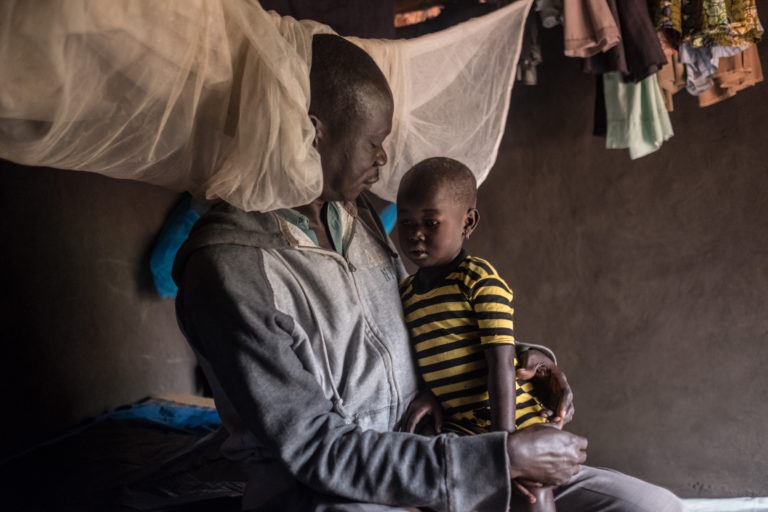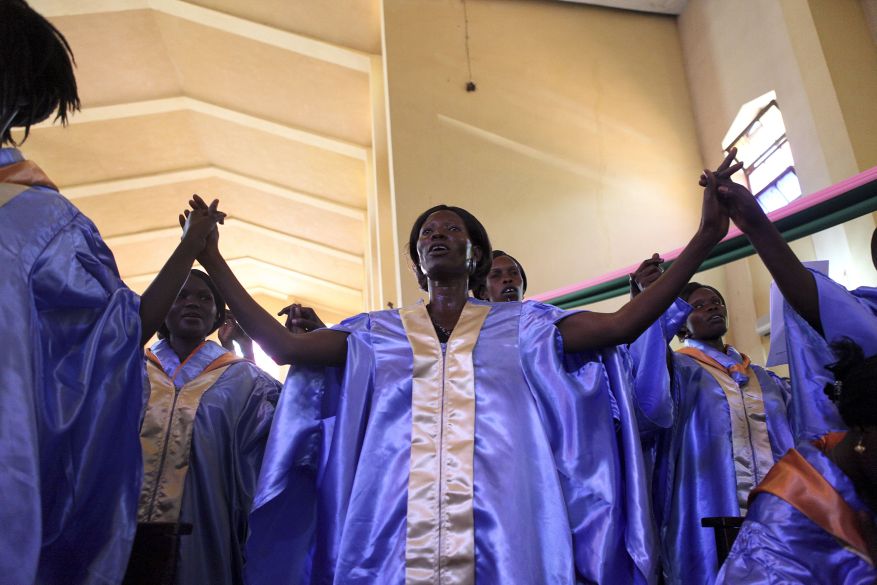“The 10th anniversary of independence could be a starting point for a new South Sudan moving towards political stability, ensuring integral human development through community-based development activities put in place by civil society organizations,” says Aloysius John, secretary-general of Caritas Internationalis, expressing the wish of the confederation for the world’s youngest state.
But for this to happen, there is a need for strong support from the international community, which now, more than ever before, can be decisive, as explains Gabriel Yai, Director of Caritas South Sudan. Today the major parties (SPLM, SFLA-I0, SSOA, SSOPP) have signed the peace agreement, and they support it. The different armies have been combined, and they are being trained to form a national army. The State Council and the legislative councils have been formed, and the members of the two houses of parliament have been sworn in.
This is the golden opportunity for the international community to help in nation building. Our country is more than ever in need of international political support to consolidate the political emancipation of leaders and to build a state army that will protect the people. Our nation could have started off well after independence if the international community had been there to accompany the transition towards building the political autonomy of our country by forming the political and administrative cadres,” says Gabriel Yai.
The Caritas Confederation has accompanied the peace process during these ten years, which were unfortunately deeply marked by serious conflicts. Caritas South Sudan was created in November 2011 to cater to the needs of people returning to the country, and also to improve the living conditions of those who were living in poverty in South Sudan during these years. With a network of several Caritas member organizations helping Caritas South Sudan, a vast emergency and rehabilitation program was put in place in the seven dioceses to respond to the needs of the poorest.
“Church and Caritas were the only caring and helping hands for the IDPs and the returnees all over the country,” says Gabriel Yai.
“During the height of the war, Caritas was the only organisation capable of undertaking disaster response activities all over the country, without any distinction of tribal belongingness or other differences”. said Gabriel Yai.
Caritas introduced emergency and recovery programs all over the country, consisting of four different kinds of activities: emergency food security assistance, livelihood, shelter and non-food items, and peacebuilding through awareness building. Caritas also responded to the emergency situations created by the harsh extreme climatic conditions such as drought and floods. In some places, small agricultural activities were also attempted, but they were hampered by violence due to the internal conflicts between the warring factions. [Read how our member Catholic Relief Services provides life-saving assistance to conflict and natural disaster-affected communities]
While Caritas was serving and caring for the people, the Church authorities were at the negotiating table to talk about peace and harmony in the new state with the different belligerent factions. The Catholic Church, along with the other Christian denominations, motivated and encouraged the different factions to come to the negotiating table. They were also motivating and encouraging the two top leaders Salva Kiir and Riek Machar to join the peace table.

Malis Joseph, a refugee from South Sudan, photographed with his two-year-old daughter, Flora, in the Bidibidi refugee camp in northern Uganda. Photo by Caritas 2018
“In order to survive, this young State will need international aid to build the nation through micro development programs in the rural areas where the land is still fertile. Without education, there will not be long-lasting peace, and the country needs massive support to ensure aid for the integral health programs. Civil society organizations must also be empowered to play a vital role in the micro community-based development,” adds Aloysius John, Secretary-General of Caritas Internationalis”.










